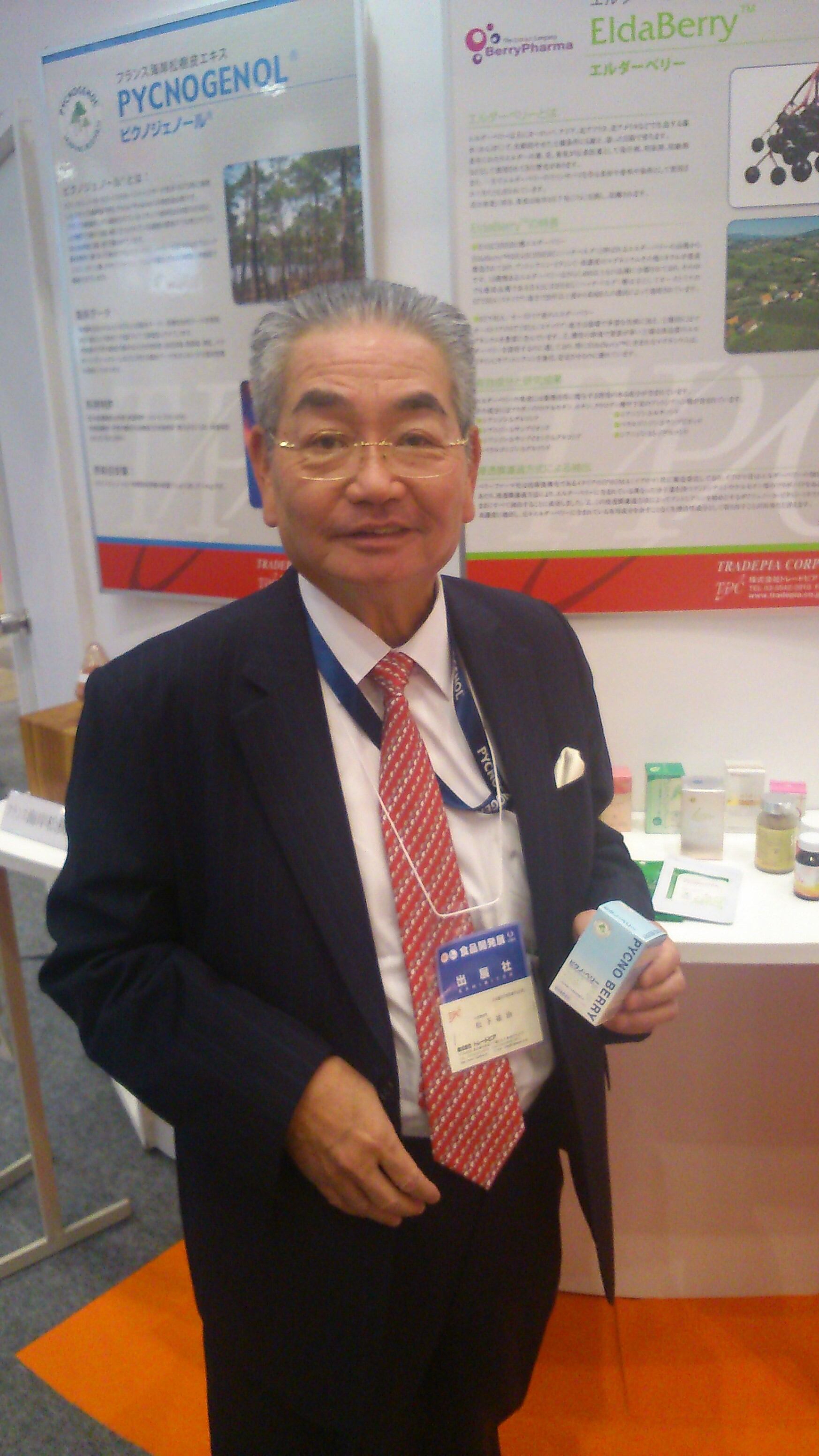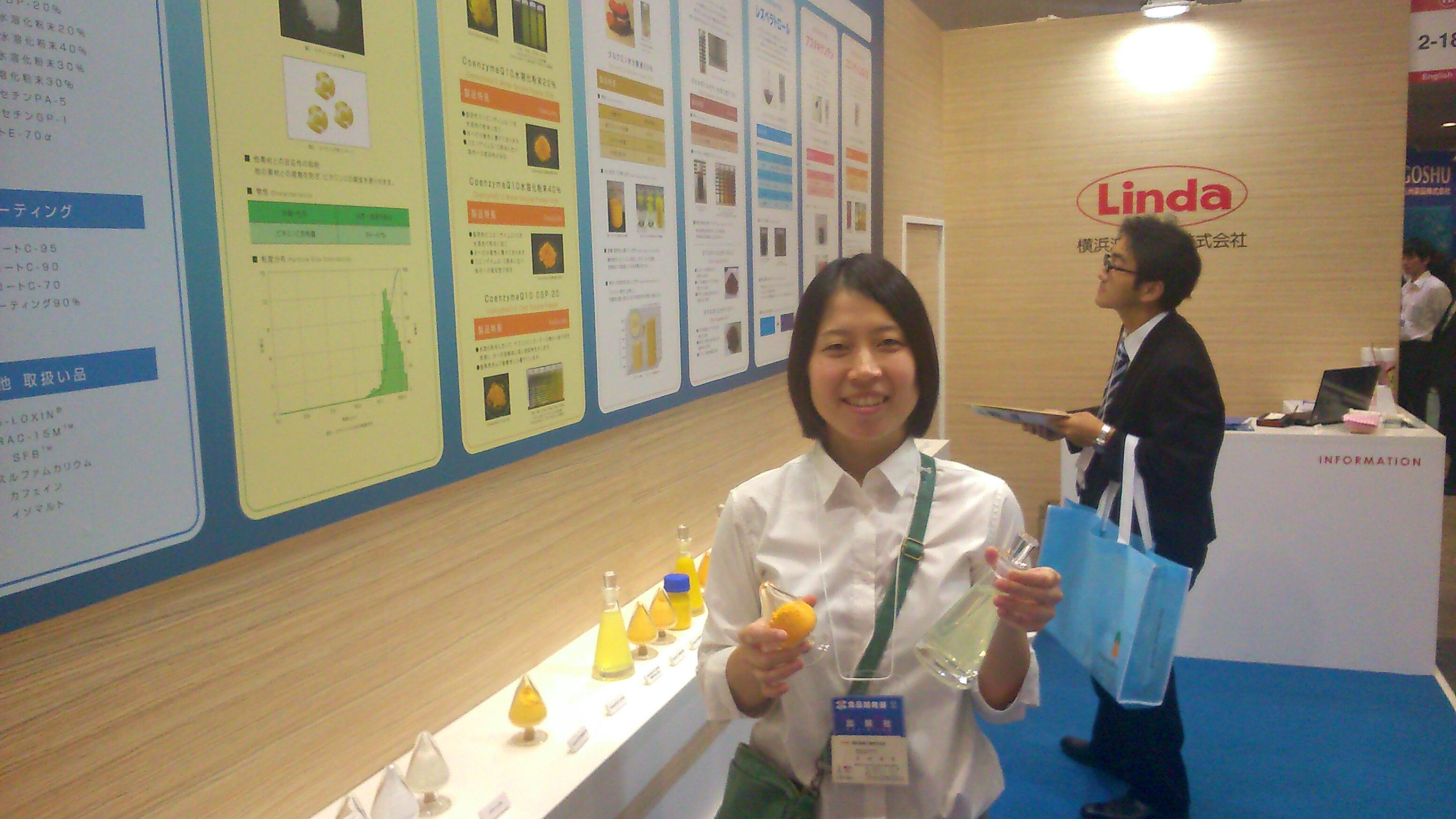The new laws – currently under preparation by the Japanese Ministry of Health, Labour and Welfare and scheduled to go live in April 2015 – will operate alongside Japan’s FOSHU (Foods for Specified Health Uses) health claims system that is increasingly deemed too costly and cumbersome to promote innovation in a market that was hard-hit by the 2008-09 economic recession.

“The recession was a shake-up for the nutrition market here,” said Ashley Roberts, PhD, senior VP, food & nutrition group at international consultancy, Intertek Cantox.
“Coupled with an ageing population the government had to change its philosophy and these new laws are a part of that.”
The regulation change was being welcomed by the biggest multinational players with the likes of Naturex, DSM, Lonza, Rousselet and locals like Taiyo Kagaku, the Yokohama Oils and Fats Industry (Linda) and Morinaga Milk Industry telling us of their anticipation for real changes in marketing practices.
Yuji Matsushita, president at Japanese distributor Tradepia Corporation (TPC), called the proposals, "a great change."
Beyond 1991

There may exist about 1000 approved, product-specific FOSHU claims since it was introduced in 1991, but the cost and length of time to win a claim is regarded as prohibitive, especially for small-to-medium sized enterprises (SMEs).
Nobody knows how the new health claims system will look exactly – a formal draft is expected from the Ministry in December – but the word on the ground at Hi-Japan is it will resemble the US structure-function health claims system, albeit modified to include some kind of pre-market notification system.

Matsushita said the regulatory shift was set to bring significant change to a market many consider the edgy home of healthy food innovation – a tradition that dates back to Yakult’s entry into the market with little immune health-promoting probiotic bottles in the mid-1930’s.
TPC distributes ingredients for the likes of Horphag in France and BerryPharma in Germany and Matsushita said such firms were equally excited by the potential for disease prevention and health optimisation marketing offered by the new rules.
While TPC and other suppliers would not apply for claims – that is the job of the finished product manufacturers – they would work with them and advise them on the construction of dossiers as they had done in other regimes like those in the European Union, the US, Australia and elsewhere.
Medical world embrace – “it’s a great change…”
The new law is also set to permit medical professionals to recommend food supplements to patients for the first time, including in combination with drugs.
“From April 1st medical doctors can [prescribe] at the hospital or clinics,” Matsushita said. “And combination therapies approved by the government that mean doctors can use health insurance policy with this kind of supplement officially…it’s a great change.”
“Obviously treatment of disease claims are out of bounds but many areas like joint health, brain health, immune health will be opened up by this.”
This kind of shift in government policy is fuelled by Japan’s rapidly ageing population – about 25% of the populace are retired making Japan one of the oldest nations on Earth. Amid such demographic shifts the government knows it cannot afford to treat all the elderly’s medical problems in hospitals and is therefore keener than ever to back nutrition’s role in disease prevention.
Expanded claim potential
Sayaka Yoshida, overseas sales manager in functional foods at Linda, said the law would open commercial doors for its biggest ingredient, CoQ10.

“In Japan many people consider CoQ10 as a beauty ingredient and not so much for its energy boosting and metabolism benefits so I think people in Japan will come to know it more and consider it as more than a beauty ingredient.”
She said a potential CoQ10 claim may target energy boosting among the elderly and may be sought for a product containing it as a blend with other ingredients.
“But we are waiting for the government guideline before we move forward on this.”
Free-to-attend Healthy Ageing Forum: October 28
Insights into the Japanese and other global healthy ageing markets will be discussed and debated in a free online forum hosted by NutraIngredients on October 28.
The discussion with leading experts will explore the actions of the food, drink and supplement brand leaders, the formulations, the science and regulatory environment in an unmissable forum that spans demographics as it does all elements of the healthy foods and supplements sectors.
Sign up here.
